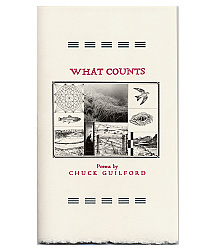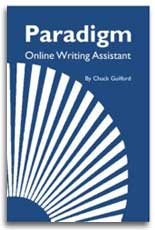Revising
Style refers to the ways in which we consciously or unconsciously reveal ourselves in our writing, and it should be tailored to the specific situation that prompts the writing.
Revision means "re-seeing." Strong revisers develop a "critical zoom lens" that allows them to shift perspective from broad overview to minute detail, and to see how these levels of composition relate. To revise well, then, you must become a perceptive and imaginative reader of your own work, a reader who can anticipate another reader's response and see new ways the writing might evolve.
Everyone has an individual style, not only professional writers. We all—the Hell's Angel in denim and leathers, the banker in pinstripes and bifocals—reveal our personalities and values in our appearance, in our possessions, and in our language.
Few people enjoy writing so much that they do it just for fun. Sometimes an impulse or insight may inspire us to sit down and write "just for the heck of it," without any sense of readers or purpose. Poems and journals often start like that. If you've kept a journal, you know such writing can be enjoyable and worthwhile. You can explore your experience and sift it for meaning. Yet even such expressive writing springs from a real life context that elicits language. All writing is situation bound. It's a response prompted by various needs, desires, and demands from both inside and outside.
As you revise you'll want to get all parts of your paper working together to produce a unified effect. Just as a basketball team whose members work as a unit has a better chance of success than one whose members work at cross-purposes, the papers you write-whether letters, reports, or essays will more likely succeed if they're unified, if they have a singleness of purpose to which every word contributes.
Page 1 of 2



